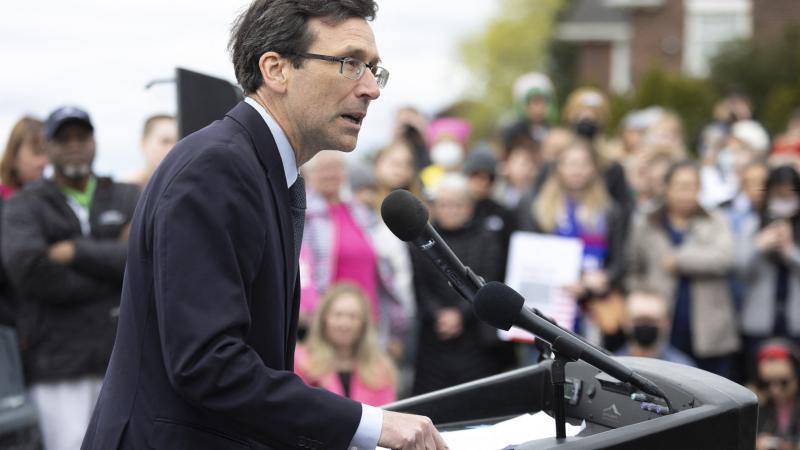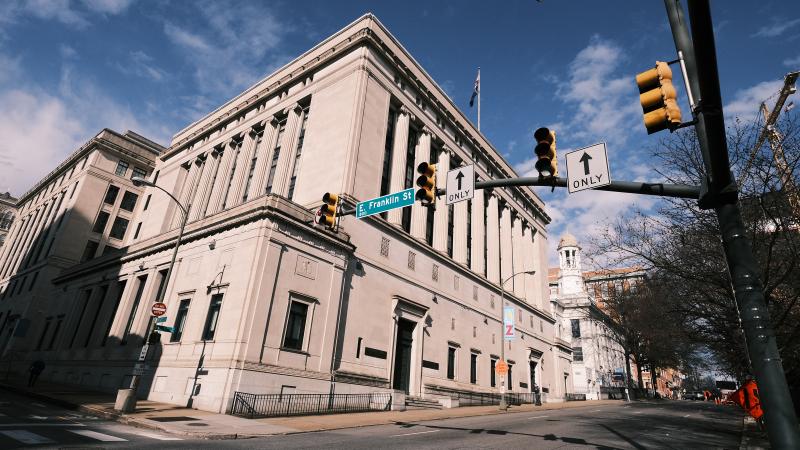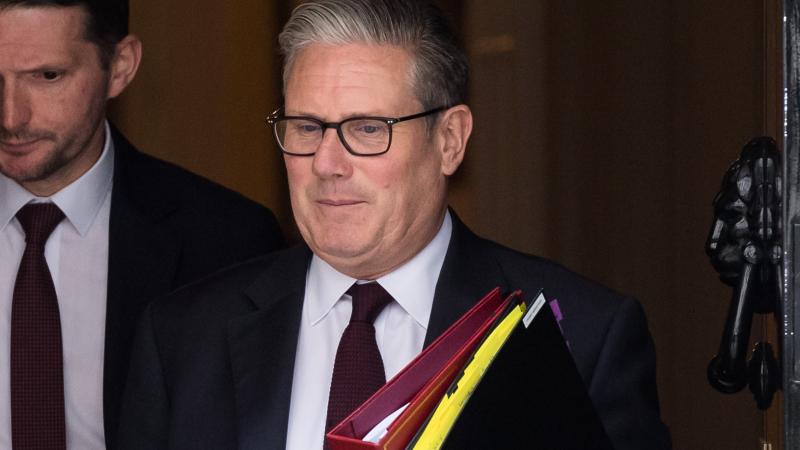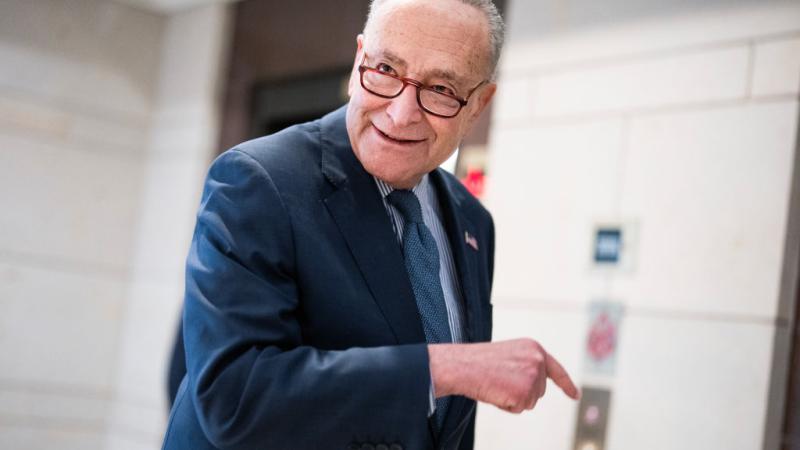From trade deals to a water czar, here are some big ideas for Donald Trump's next 100 days
Even with many of his campaign promises coming to fruition via executive action, the dizzying first 100 days of President Donald Trump’s second term show no signs of slowing in the next 100.
President Donald Trump set a dizzying pace for his first 100 days in office, fulfilling many of his campaign promises and setting the stage for much more dramatic transformation over the next few months.
“If [Trump’s tariffs] work out, he's going to look like a rock star,” conservative pollster Rich Baris told Just the News.. “Everyone's going to appreciate it quite a bit because it's going to be something that he had the nerve to do that others did not. And he’ll get credit for it.”
Here are some of the big ideas that have been floated from inside and outside the administration for the next 100 days.
Score Trade Deals that Build Off His Tariff Policies
When Trump announced new or increased tariffs on "Liberation Day" in the White House Rose Garden earlier this month, the world’s markets shook and economists were rattled.
After plenty of “the sky is falling” sentiment from news media which stressed out Americans, the initial pain of such trade upheaval has begun to subside as investors embrace the promise of new deals that open American goods to once-protected foreign markets like India, Israel and Vietnam.
Treasury Secretary Scott Bessent told the press repeatedly that roughly 70 nations have called the White House to negotiate. Experts say the key ones to changing America's trade trajectory are Europe, Canada, India, Japan, South Korea and Vietnam.
Major financial figures like Bill Ackman and economists like Steve Moore are now predicting the 47th president could unleash a massive economic boom if he can succeed quickly in securing deals with major trade partners that are more fair and open to U.S. manufacturers.
"By launching the tariffs on April 2nd, President @realDonaldTrump has enabled our trading partners to experience the visceral impact of the tariffs on their markets, companies, and citizens, and he has shown that he is prepared to do what is necessary to address unfair trading practices," Ackman wrote on X recently. " The result has been nations lining up to negotiate deals with the administration. So far so good."
Moore, an adviser during the first Trump administration, admits he opposed using tariffs but has reconsidered his position and now believes if a healthy number of deals are secured by Trump in the next 100 days it could unleash prosperity and end market panic.
"I was a skeptic, as you know. I thought Trump has really gotten himself into a thicket that he might not be able to get out of when we all saw those big declines in the stock market, and people started to panic. But, you know, Trump, really this guy is shrewd. He really is two moves on the chessboard ahead of everybody else," Moore told the Just the News, No Noise television show last week.
"And right now I'm feeling pretty confident, not entirely, and I'm not saying that the motion sickness that we've all had on the stock market is over," he added. "I think we're going to have up days and down days based on the progress that's been made. But it sure looks a lot better than it did a couple of weeks ago."
"And if we can get these major deals done, and then if we can keep moving forward on the tax bill, that's a doubleheader that is just unbelievable for the economy, and I think you could see a real boom this summer in the stock market."
Make the tax cuts permanent
Moore's prediction of an economic boom leans into a second major task for the second 100 days: getting Trump's 2017 tax cuts renewed before they expire at the end of the year. Though ridiculed by Democrats as a tax cut for the rich, the data shows the policy has been profound for everyday Americans.
An April 2025 Heartland Institute study of IRS data shows that from 2017 to 2022, filers who earned between $30,000 and $40,000 saw a tax cut of 21.4%. Filers earning $40,000 to $50,000 received a cut of 18.8%. For filers making $50,000 to $75,000, their tax bill decreased 16.5%.
However, every tax bracket at the $500,000 level or above experienced a tax cut, but by less than 10%. For the millionaires and billionaires who naysayers claim benefited the most, their tax cut was just 4.1%.
The goal now is to get the tax cuts made permanent in the next funding package, which Trump and Congress have called “one big beautiful bill.” If not, the individual income tax cuts will expire, reinstating what tax expert Pete Sepp, president of National Taxpayers Union, predicts will be a punishing 22% tax increase, or upwards of $1,800. And if you have children it will be even more than that.
Trump has also floated the idea of bringing down the general income tax rate for all Americans. On April 27 he told the press, “We're gonna cut taxes for the people of this country. It'll take a little while before we do that... it's possible we'll do a complete tax cut. I think the tariffs will be enough to cut all of the income tax."
'Water Is The New Oil.' Create a water czar.
At the very end of his first term, Trump signed an historic executive order aiming to re-imagine and reorganize America's stressed water resources, especially in the West. Joe Biden's election win thwarted that reform, and the need has only grown since.
China has been aggressively buying farmland in America that has rich water reservoirs, as have billionaires like Bill Gates. That trend only further heightens the oft-stated battle cry that "water is the new oil."
Trump could consolidate the chessboard and make leadership of this pressing issue easier by naming a czar for water rights just like he did for border security. Tom Homan's appointment and record as border czar is one of the administration's shining successes of his first 100 days in office.
A water czar could be transformative for the second 100 days.
Name a 'Transparency Czar' to speed promised release of government documents
One of Trump's half-met promises from the first 100 days was releasing declassified documents from America's many scandals and controversies, from Russia collusion and Jeffrey Epstein to the JFK, RFK and MLK assassinations.
The initial releases poured hundreds of thousands of pages of documents into the public domain but often left historians and Trump's base underwhelmed and clamoring for more. The effort also took valuable time and resources from key administration officials like Attorney General Pam Bondi and FBI Director Kash Patel.
Sen. Ron Johnson, R-Wis., the chairman of the Senate Permanent Subcommittee on Investigations, offered Trump a big idea to speed releases and ease burdens on busy Cabinet secretaries: name a czar to oversee the process. Johnson has even given the job a catchy name: "Secretary of Radical Transparency."
"It's been a little slow with the deep state ... It's going to be difficult for all of these Cabinet picks. And they're tremendous individuals, and they're all dedicated to radical transparency, but they're dealing with the bureaucracy that exists," Johnson told Just the News this month. "And so there are so many roadblocks. And you know this, they can come up with 16 ways to Sunday to make an excuse saying, 'well, we can't turn over that piece of information.' So that's going to take some time to breakthrough."
End the state blockade and allow health insurance to be sold across state lines
America's health insurance industry has for decades been a hodge-podge of regulated markets controlled by state insurance commissioners, and conservatives have long dreamed of breaking down the walls between states to increase competition and lower premium prices.
In 2019, Trump began moving in that direction with an order asking the Department of Health and Human Services to study how to break down barriers and let Americans buy health insurance across state lines. That job got interrupted by the Biden years but it is gaining excitement once again.
Trump could put that excitement on course for finalization with a similar action, with three years to implement and work out the kinks, rather than just one at the end of his first term.
End Gain of Function Research
The end of Trump's first term collided with the Covid pandemic and as a result, Trump has made many government and research-altering policy proposals on how to prevent a future pandemic and a subsequent economic shutdown. The type of research that many believe led to the creation of the novel SARS-CoV-2 virus is called "gain of function," and like Obama, who banned it during his time as president, Trump has indicated he intends to ban it once again.
Gain of function research has become a glaring part of the American vernacular due to its ability to — and intended outcome of — making viruses more dangerous in a laboratory environment so that researchers can examine them and preempt their virility with the creation of vaccines. Trump's order will likely ban all research increasing a virus' infectivity or pathogenicity.
The executive order is driven by Gerald Parker, who is in charge of the White House Office of Pandemic Preparedness and Response Policy.














